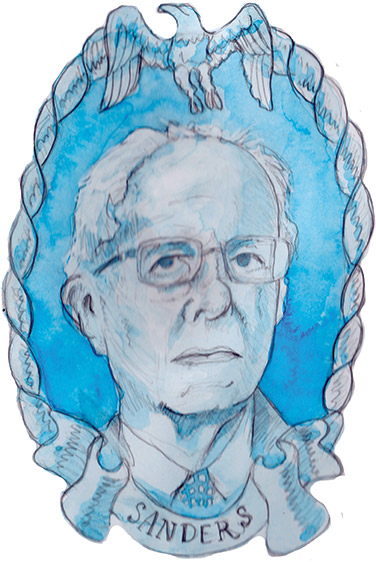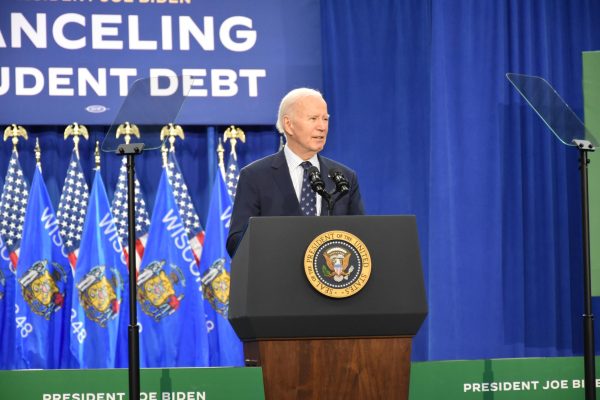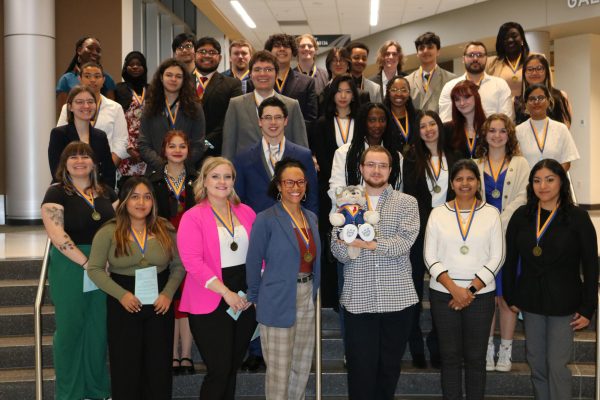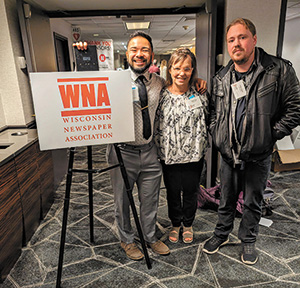Sanders faces long odds on way to White House
March 23, 2016
The “Feel the Bern” bumper stickers and T-shirts are all over Madison and tell a story. Bernie Sanders, democratic candidate for President of the United States, has struck a nerve with voters who want to narrow the gap between the rich and everyone else.
He is especially appealing to young voters and progressives.
“Bernie? I like him because he has he got the most swag in the election,” says Savannah Benjamin, 17, of Madison.
Sanders had been running a close race against Hilary Clinton, but now trails Clinton by 774 delegates. Still, he has said he no plans to quit.
The self-described “democratic socialist” has won contests in New Hampshire, Colorado, Minnesota, Oklahoma, Vermont, Kansas, Nebraska, Maine and most recently Michigan. Now, he needs to win just about every remaining state — including Wisconsin on April 5 — by considerable margins to beat Clinton.
Sanders’ campaign platform calls for ending what he calls “Wall Street’s death-grip on Congress,” free health care for all, free college tuition, a living wage, combating climate change, supporting veterans, preserving family farms and ending racial justice.
“We got a collapsing middle class,” Sanders told Bill Moyers in October 2014. “We have more wealth and income inequality today than we’ve had since the 1920s. We have all of these enormous issues. And what big money can do is put an unbelievable amount of TV and radio ads out there to deflect attention from the real issues facing the American people.”
The question some voters raise, though, is how Sanders would pay for his proposed reforms.
Beverly Anderson, 71, of Black Earth and a grandmother of a Madison College student, says, “I just don’t like all these promises he makes. I mean, yeah you got good ideas, but where is the money going to come from? You know what people say — Bernie would do very good as President of Sweden.”
Sanders was born on Sept. 8, 1941 in Brooklyn, New York. His parents, Eli and Dorothy Sanders, moved to the United States from Poland in 1927 when his father was just 17-years-old. Sanders’ father was born into a Jewish family and stories of Hitler’s reign of terror in Europe and the Holocaust greatly influenced Bernie and drove him to politics at a young age. He has one older brother, Larry.
In 1964, Sanders graduated from the University of Chicago with a bachelor’s degree in political science. While in school, he was very involved in helping the community as a member of the Young People’s Socialist League and Civil Rights Movement.
In the early 1960s he was a student organizer for the Congress of Racial Equality and the Student Nonviolent Coordination Committee. Sanders, along with about 30 other students, launched a sit in at the university president’s office to protest off campus segregation. He also was present for the March on Washington for Jobs and Freedom and saw Martin Luther King’s “I have a dream speech.”
After graduating, Sanders moved to Vermont where he worked as a carpenter and documentary filmmaker. In 1981, he was elected as mayor of Burlington, Vermont by just 12 votes.
He was elected to the U.S. Senate in 2006 after serving 16 years in the House of Representatives and is the longest serving independent member of Congress in American history. He serves on five Senate committees: Budget; Veterans; Energy; Environment; and Health, Education, Labor and Pensions.
While in Congress, his record includes being one of only 67 votes against the Defense of Marriage Act, which denied federal benefits to same-sex couples who were legally married.
One of Sander’s biggest platform issues is the stance against war. He has said that as a member of Congress, he has supported the use of force only when it was a last resort and when America’s vital interests were at stake.
On his website, berniesanders.com, Sanders writes, “We live in a difficult and dangerous world, and there are no easy or magical solutions. As President and Commander-in-Chief, I will defend this nation, its people, and America’s vital strategic interests, but I will do it responsibly. America must defend freedom at home and abroad, but we must seek diplomatic solutions before resorting to military action. While force must always be an option, war must be a last resort, not the first option.”
Sanders lives in Burlington with his wife Jane. He has four children and seven grandchildren.
“I’ve run outside of the two-party system, defeating Democrats and Republicans, taking on big-money candidates and, you know, I think the message that has resonated in Vermont is a message that can resonate all over this country,” Sanders told the Associated Press on the day he announced his 2016 run. “People should not underestimate me.”











